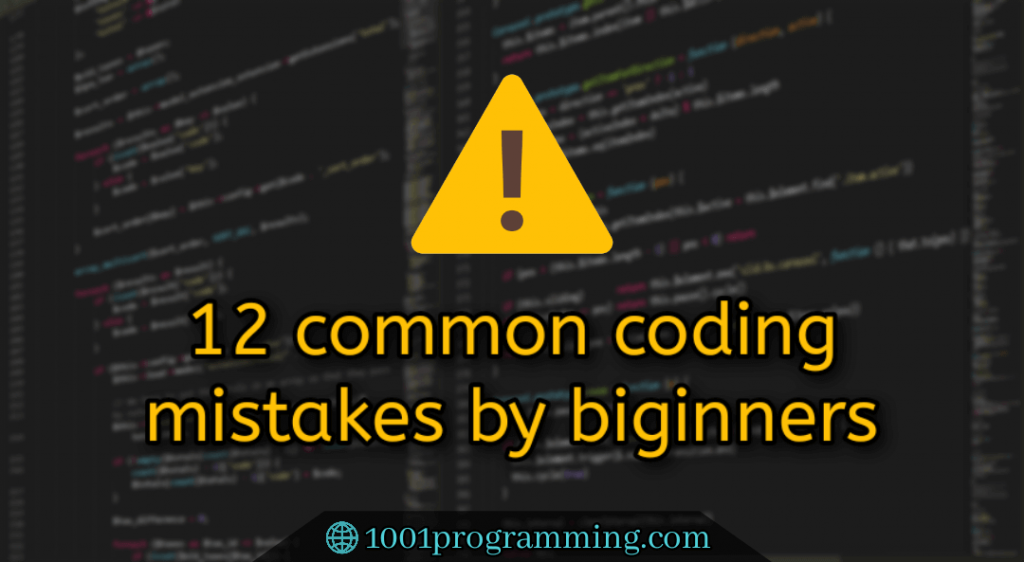Understanding Common Coding Errors and Logical Issues
Missing Initialization Causing Undefined Behavior
When a variable is used in a program without being initialized, it leads to undefined behavior and unpredictable results. This occurs in the code snippet:
for (I==1; I%3C=3; I++) printf ("hello");
Random Initial Values Can Affect Output
In the above code, the variable I is never initialized and its initial value is unknown. While an uninitialized variable can potentially have any random value, it happened to start with 0 in this example, allowing the loop to run 4 times. Without initialization, I could take on any value like -32768 leading to different behavior each time. It is risky to rely on luck for program logic to work correctly.

Comparison Operator Instead of Assignment
Another issue is that == is a comparison operator and not assignment. So the line I==1 merely compares the uninitialized value of I to 1 but does not set I to any value. This comparison returns true or false but has no effect on the value of I.
Logical Error Goes Unnoticed
This logical error may go unnoticed as the code appears to work in some cases by chance. But it causes undefined behavior - the output and program flow cannot be reliably predicted. A compiler warning about == not assigning a value could help catch this issue early.
Fixing the Logical and Syntax Errors
To fix the logical error, I needs to be initialized before use in the loop. And = must be used for assignment instead of ==.
Proper Initialization and Assignment
The corrected code is:
for (I=1; I<=3; I++)
printf("hello");
Here, I is initialized to 1 with = for assignment. The comparison now reliably checks if I is less than or equal to 3 as intended.
Choosing Appropriate Loop Initialization
While the above fixes the errors, a better approach is to follow standard conventions for loop initialization.
Starting at Zero Like Computers
Since computers count from 0, it is clearer to modify the initialization as:
for (int i=0; i<3; i++)
printf("hello");
Declaring i Within the Scope of Loop
Here i is declared within the scope of the for loop, avoiding potential issues with variable scope. Starting from 0 also matches how arrays and strings are indexed in C.
Understanding Undefined Behavior
The initial code snippet demonstrated undefined behavior - a condition where the outcome is unpredictable.
Anything Can Happen with Undefined Behavior
With an uninitialized variable, the program may print “hello” 3, 4 or even 0 times on some runs but crash or behave strangely on other runs. Undefined behavior means literally anything is possible.
Avoiding Undefined Behavior Is Critical
It is important for programmers to understand and avoid constructs that lead to undefined behavior. Initializing variables, avoiding bugs and following standards helps create robust and predictable programs.
Recognizing Compiler Warnings
Modern compilers can help catch subtle errors.
Compiler Warnings Are Not Errors
The compiler correctly warned that I==1 had no effect but did not produce an error since the code was syntactically valid C. While code may compile with warnings, they should not be ignored.
Heeding Compiler Warnings Prevents Problems
Taking heed of warnings like this one could have caught the logical bug early. Compiler warnings exist to draw attention to potential problems and should be addressed.
Summary
In summary, the key lessons from analyzing these coding snippets are:
- Initialize variables before use to avoid undefined behavior
- Use
=for assignment, not==for comparison - Declare loop variables within the for statement when possible
- Follow conventions like starting counts from 0
- Understand what undefined behavior means for a program
- Take compiler warnings seriously to find and fix issues early
Proper initialization, avoiding logical errors and heeding compiler guidance helps write robust and predictable C code.
